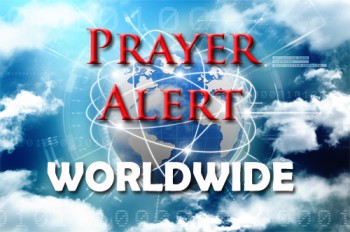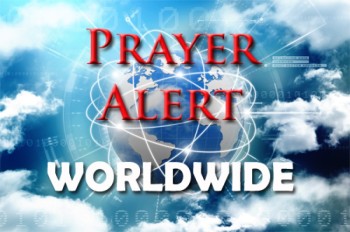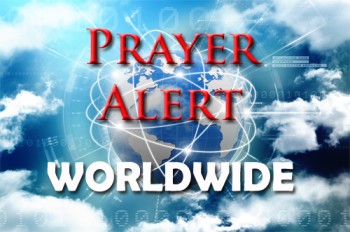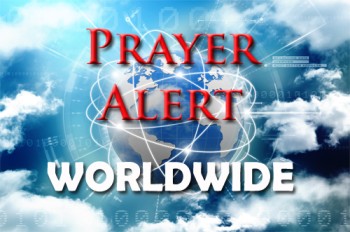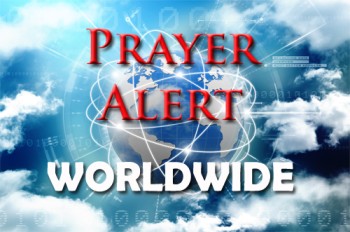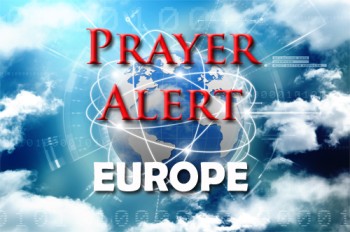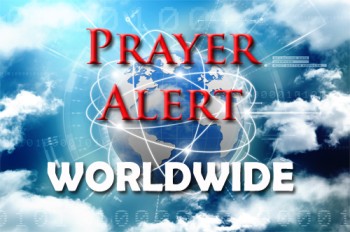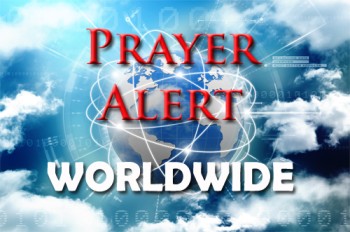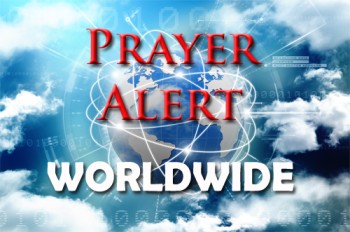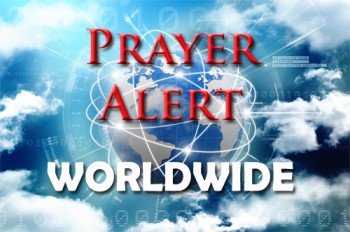Displaying items by tag: Peru
Peru: congress ousts president after four months
There is continuing political instability in Peru after congress removed interim president José Jerí only four months after he was appointed. Secret meetings with businessmen and allegations of influence-peddling triggered public outrage and a parliamentary vote of censure. His departure makes him the latest in a series of leaders forced from office in recent years, leaving citizens weary and distrustful of institutions; they long for transparent leadership which addresses corruption, crime, and social unrest. The frequent changes of government have disrupted long-term planning and weakened confidence in justice and security. The situation highlights how fragile governance affects everyday life, especially for the poor who depend most on stability. Congress will soon name a new interim president, who will serve only until a new president is chosen by the people in a general election in April.
Peru declares 30-day state of emergency in Lima to tackle rising crime
Peruvian President Jose Jeri has declared a 30-day state of emergency in the capital, Lima, and the neighboring province of Callao to confront rising crime and growing public unrest. The measure, approved by the Council of Ministers, allows the armed forces to work alongside police in maintaining order and security. In a televised address, Jeri said the government was “moving from defense to offense in the fight against crime” to restore peace and public trust. The decision follows violent protests last week that left one person dead and over 100 injured, marking the first major challenge to Jeri’s new administration. Sworn in earlier this month after the ouster of Dina Boluarte, the president has made law and order his top priority. However, analysts warn that repeated emergency declarations — including similar measures under Boluarte — have failed to address the root causes of Peru’s insecurity. Critics say lasting reform requires judicial and police accountability, not just military deployment.
Peru: Indonesian diplomat assassinated
Peru is reeling after the shocking assassination of Indonesian diplomat Zetro Leonardo Purba, who was fatally shot three times in Lima. The government expressed deep condolences and condemned the killing as a ‘heinous act’, pledging full cooperation with Indonesian authorities and enhanced protection for embassy staff. While the national police chief suggested the incident might have been a targeted attack by foreign assailants, Indonesian officials expressed doubt, noting Purba had not received prior threats. Some attributed the tragedy to rising violent crime in the capital, where homicides and extortion have surged under president Dina Boluarte. Purba, who had been serving in Lima for only five months, leaves behind a wife and children. His death comes just weeks after Peru and Indonesia marked fifty years of diplomatic relations with a free-trade agreement.
Peru: president issues amnesty for hundreds accused of atrocities
President Dina Boluarte has signed a contentious law pardoning soldiers, police, and civilian militias accused or convicted of atrocities during Peru’s 1980–2000 armed conflict against Maoist rebel groups Shining Path and Tupac Amaru. The measure, despite an order from the Inter-American Court of Human Rights to suspend it, will release those over 70 and halt or overturn more than 600 trials and 156 convictions. Peru’s Truth and Reconciliation Commission estimates that there were 70,000 deaths and 20,000 disappearances during the conflict, with state forces responsible for significant abuses, including 83% of documented sexual violence cases. Human rights organisations and UN experts have condemned the law as a betrayal of victims and a blow to decades of accountability efforts. Critics warn it undermines justice for survivors of massacres, torture, and enforced disappearances, while supporters describe it as honouring those who fought insurgency. The law deepens debate over justice, reconciliation, and impunity in Peru’s fragile democracy.
Peru: farmer’s lawsuit against polluting German firm
A German court has dismissed a lawsuit by Peruvian farmer Saul Luciano Lliuya against energy giant RWE, rejecting his claim for damages over flood risks in his hometown linked to climate change. Lliuya argued that RWE’s historic carbon emissions contributed to the melting of Andean glaciers threatening his town of Huaraz. Though the court found no immediate threat to his property, it acknowledged that major emitters may bear proportional costs for preventative climate measures. This ruling, while unfavourable to Lliuya, is seen as a landmark in climate litigation, particularly as it came from a plaintiff in the global south against a global north corporation. The court also said that RWE should have foreseen the effects of its emissions. Although RWE argues that climate change cannot be blamed on a single emitter, legal observers view the case as a potential turning point for holding polluters accountable globally.
Vatican: a new pope is elected
On 8 May Pope Leo XIV, born Robert Francis Prevost in Chicago in 1955, was elected as the new head of the Catholic Church, becoming the first North American, American, and Peruvian pope. A member of the Order of Saint Augustine, he is also the first Augustinian pope in modern times. Prevost’s career included decades of service in Peru as a pastor, seminary educator, and diocesan official, before rising within his order’s global leadership. He later served as Bishop of Chiclayo and was made a cardinal in 2023, shortly before becoming Prefect of the Dicastery for Bishops - a critical Vatican post. His wide linguistic fluency and diverse cultural experience positioned him as a bridge between the global North and South. His leadership will be closely watched for how he navigates past controversies and leads a Church increasingly shaped by voices from the global south.
Peru: another former president found guilty of corruption
Former president Ollanta Humala and his wife, Nadine Heredia, have been sentenced to fifteen years in prison for laundering $3 million from Brazilian firm Odebrecht and $200,000 from Venezuela’s former president Hugo Chavez. Humala, who served from 2011 to 2016, was taken into custody immediately after the verdict. Heredia sought asylum at the Brazilian embassy and was granted safe passage to Brazil with her youngest son. The trial, which spanned three years, centred on illegal funding for Humala’s 2011 campaign. Prosecutors allege the funds were funnelled through his Nationalist Party to defeat rival Keiko Fujimori. He is expected to serve his sentence at a facility built for former presidents; Alejandro Toledo and Pedro Castillo are also detained there. Former president Alan Garcia killed himself in 2019 as police arrived at his home to arrest him for alleged corruption. Odebrecht has admitted to paying $788 million in bribes worldwide to secure government contracts.
Peru: state of emergency declared
A thirty-day state of emergency has been declared in Lima following a surge in violent crime. President Dina Boluarte’s government made the decree after the murder of popular cumbia singer Paul Flores, who was killed in an attack on a bus. The move allows police and military forces to detain suspects with fewer restrictions, limiting freedoms of assembly and movement. The decision follows weeks of rising violence, including an explosion at a restaurant that injured eleven people. There have been 459 killings so far this year, and nearly 2,000 extortion cases in January alone. Boluarte has raised the possibility of the death penalty for murderers, though at present Peruvian law only permits it for treason. Opposition lawmakers are demanding a no-confidence vote against the interior minister, accusing him of failing to curb crime. Public outrage remains high as Peru struggles to restore security.
Peru: Pope Francis dissolves Catholic movement
Pope Francis has dissolved the Sodalitium Christianae Vitae (SCV), a Peruvian-based Catholic movement, after a Vatican investigation exposed years of abuse by its founder, Luis Figari, and other leaders. The probe revealed sexual, spiritual, and financial abuses, along with misuse of church funds. The SCV, founded in 1971 as a conservative reaction to liberation theology, once had 20,000 members across South America and the USA. Victims accused Figari of sodomy, psychological abuse, and exploitation. After failed reforms, Francis ordered an investigation which uncovered systemic abuses. Figari and ten top members were expelled, but calls for reparations remain unanswered. Victims praised the dissolution as a step toward justice.
Peru: stop press! ?
Criminals in Peru have wrong-footed themselves during a robbery at a shoe store. Three people broke into a shop in Huancayo and made off with more than 200 trainers - but they were all for the right foot. The lame attempt at a lucrative robbery was captured by security cameras. Offloading 200 right shoes may not be an easy task.
